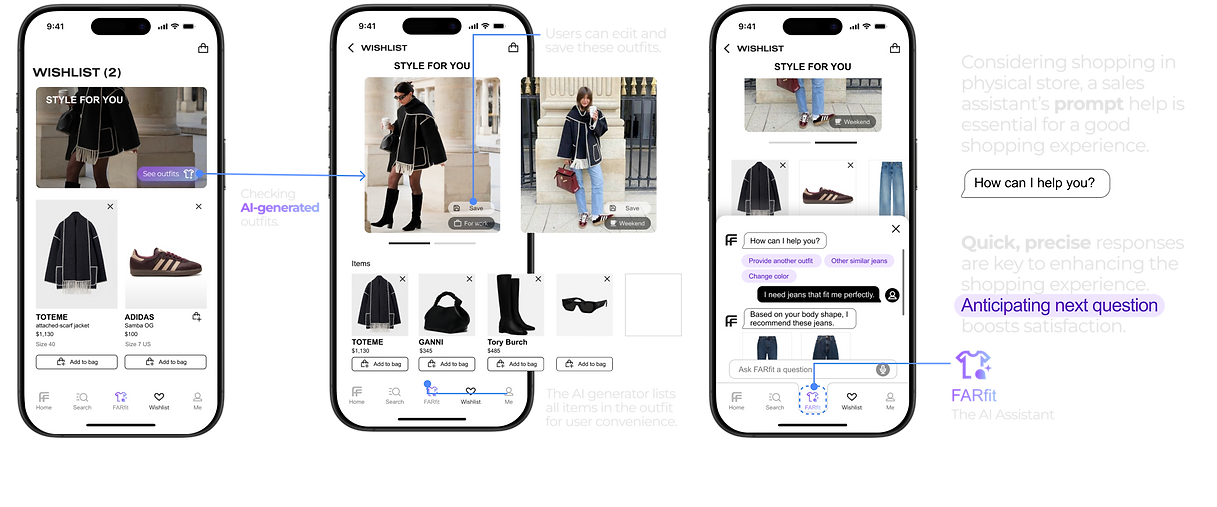FARfit
Stylish Looks, Powered by Generative AI
Integrated AI for FARFETCH E-commerce platform.
The idea of fashion and advanced technology working together to provide personalized style recommendations.
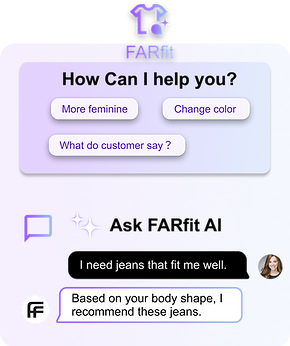
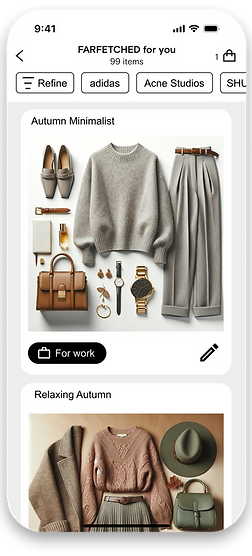
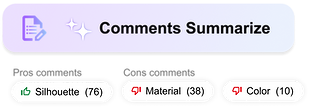
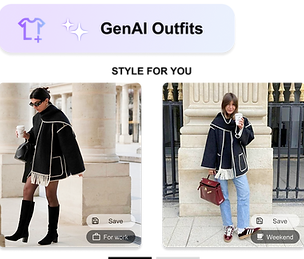
FARfit
PROJECT TYPE
UIUX Design
POSITION / ROLE
UIUX Designer
TEAM
Individual work
DURATION
3 Weeks
TOOLS
Figma, Adobe Suites
Background
I am an online shopper with a passion for fashionable clothing, accessories, and beauty products.
Farfetch is one of my favorite boutique e-commerce platforms, specializing in luxury clothing and beauty products. Their website and mobile application are both user-friendly and stylish.
This year, I’ve seen a surge in the integration of AI functionalities across commercial and educational platforms. As a UX designer and loyal Farfetch user, I am eager to explore opportunities to incorporate AI graphic generation technology into this e-commerce fashion platform. My goal is to enhance the user experience by leveraging personalized styling recommendations.
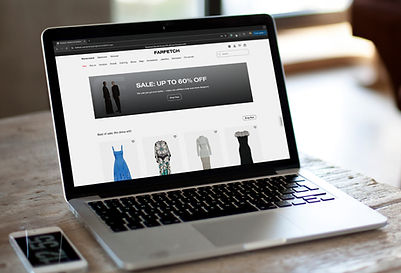
“Open the world of the best luxury curators and creators to customers everywhere.”
- Farfetch
Users' insights
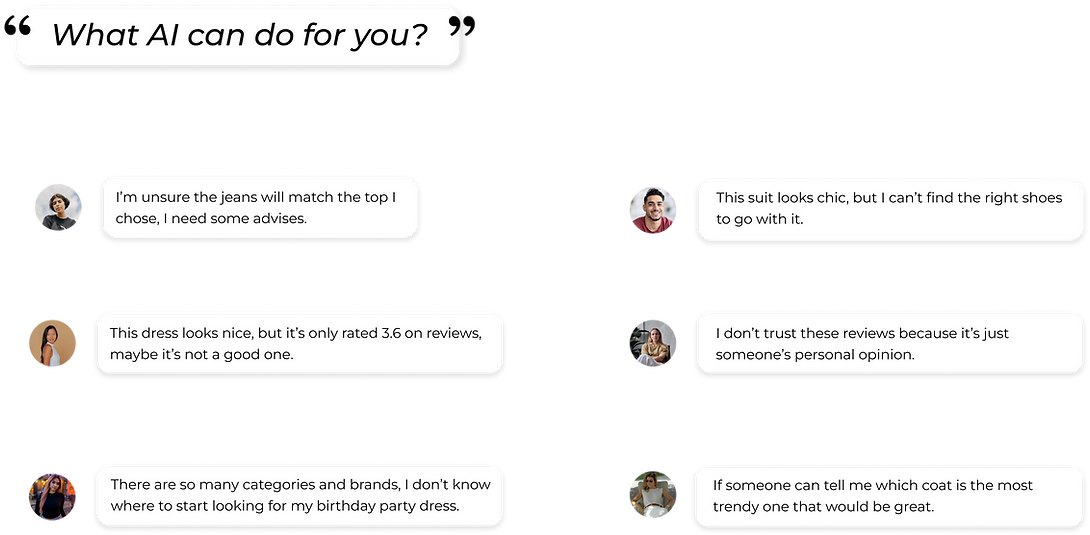
20% of the customers hope AI can offer a live chat similar to talking with a salesperson in a store.
50% of the customers hope that AI can provide fitting and styling insights.
30% of the customers hope AI can categorize social proof and reviews.
I searched websites and conducted user interviews. Here are the insights that users would like the AI to provide for online shopping.
Research
Current AI Build-in Platforms
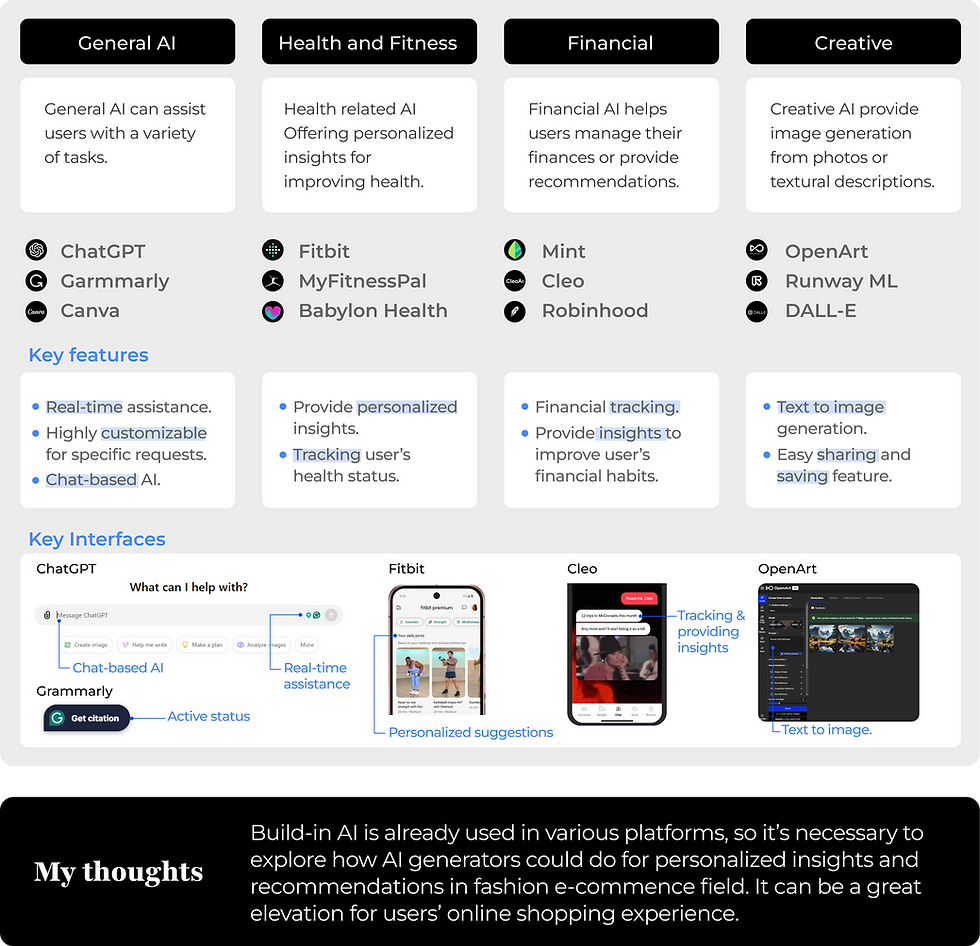
User Journey Map
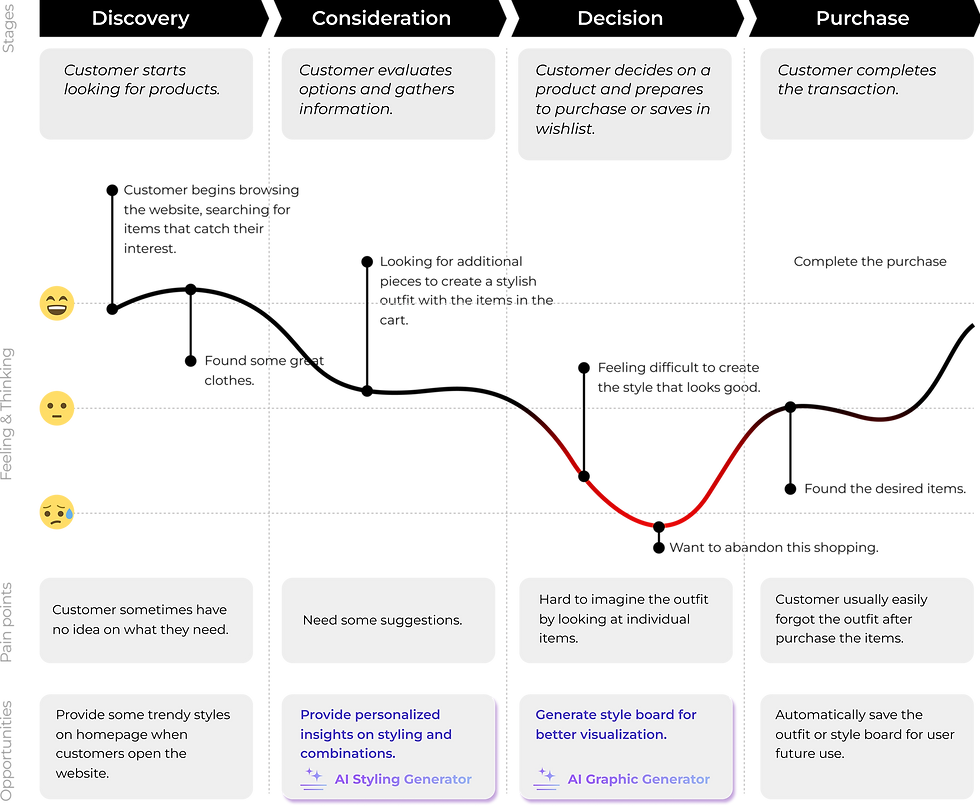
Competitor Analysis
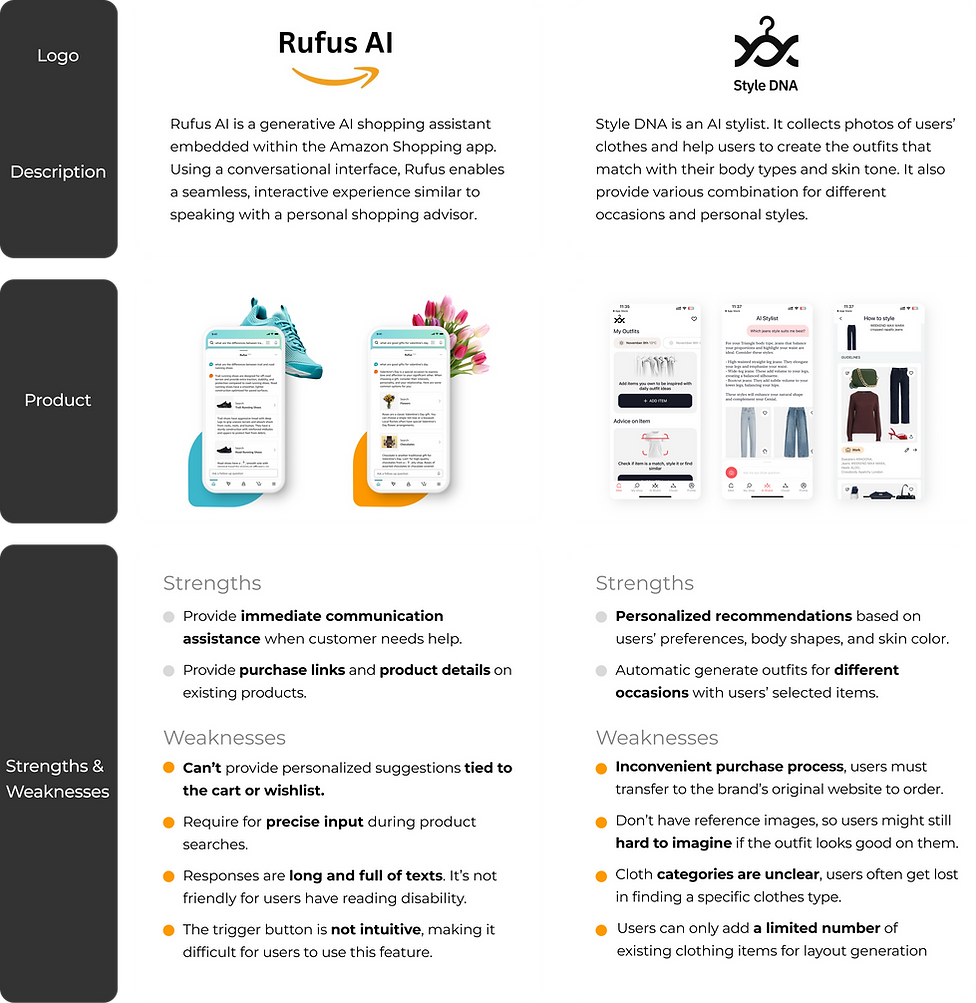
Conclusions
Based on the competitor analysis, I have the following conclusions for improving the online shopping experience on the fashion boutique website.

Ideation
Current user interface
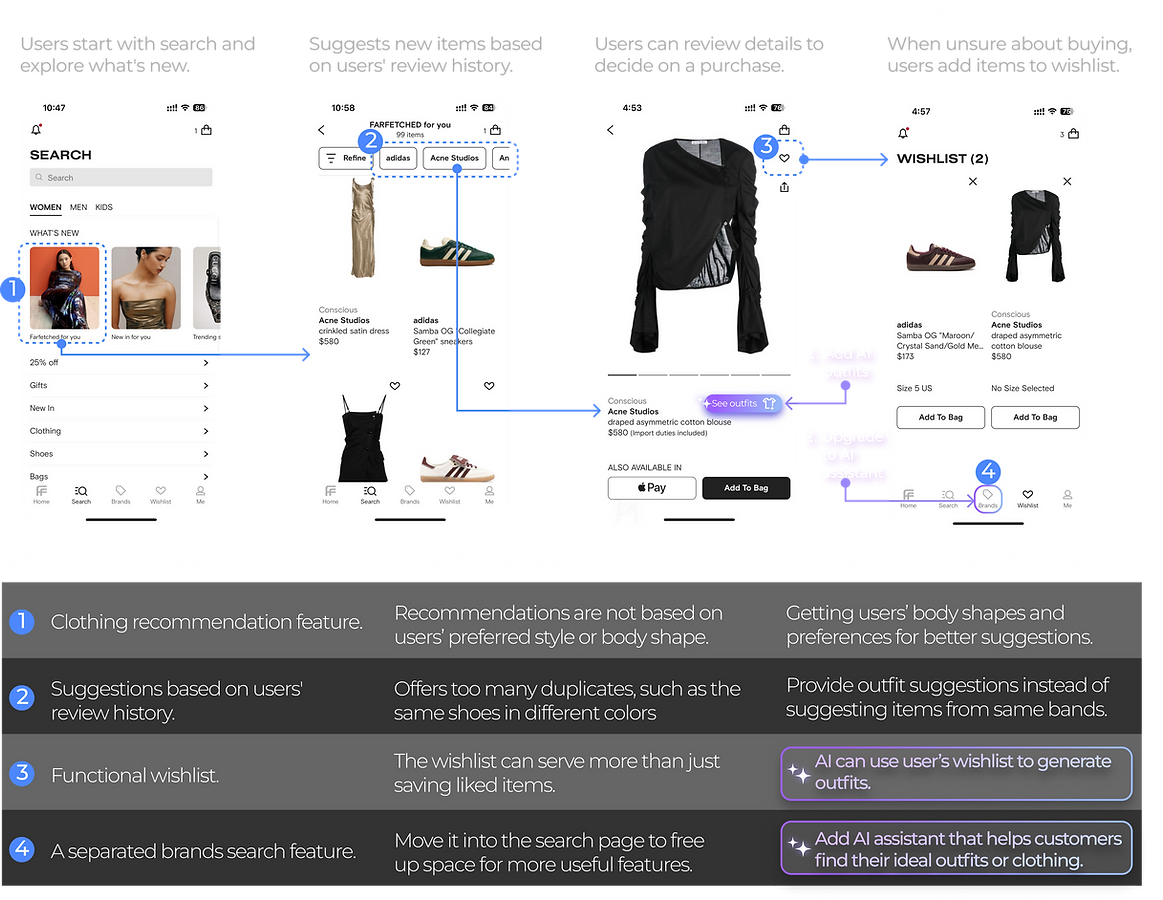
Information Architecture
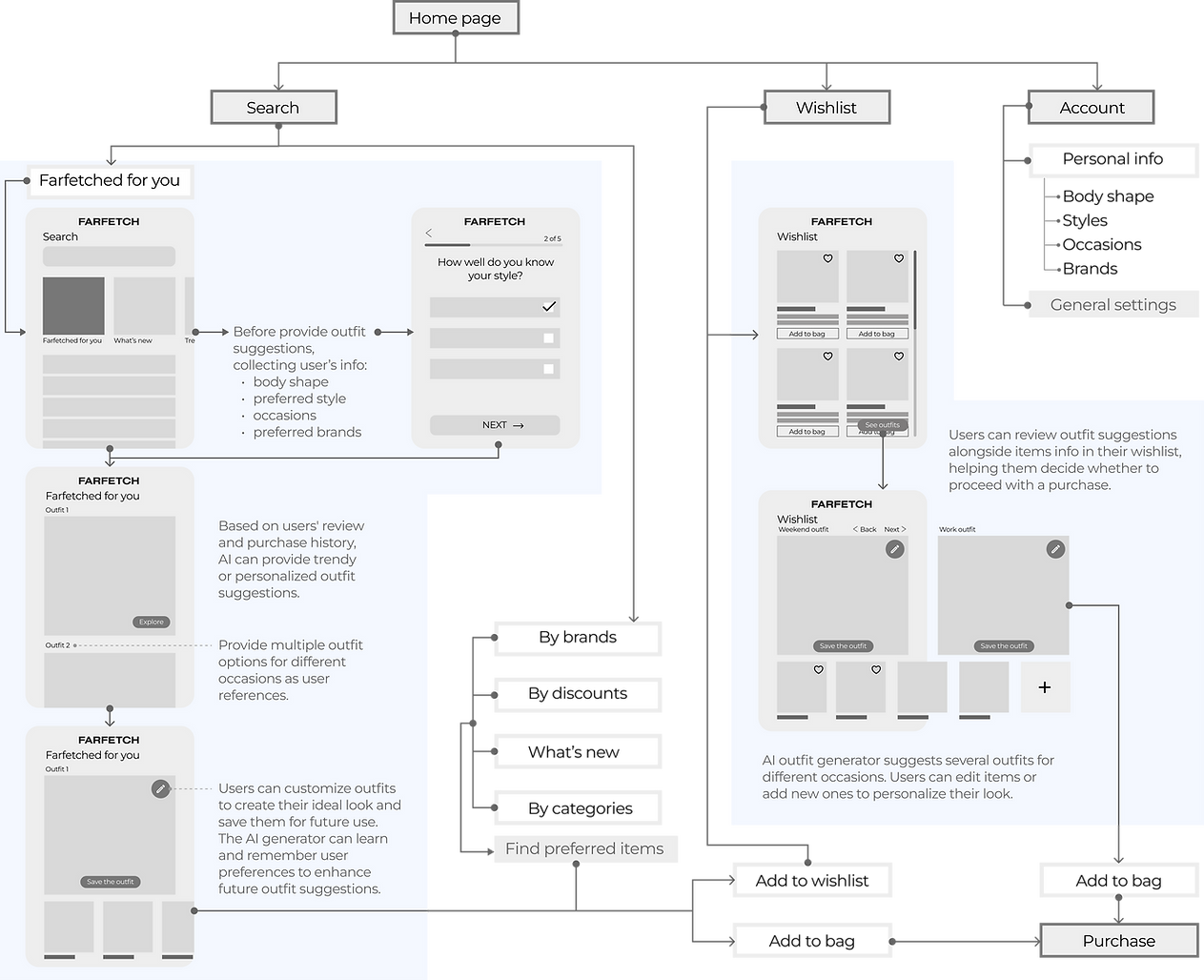
High Fidelity
Scenario 1 - Collecting User Information
Using 5 quick questions to collect user’s basic information and preference. So AI can provide personalized recommendations.
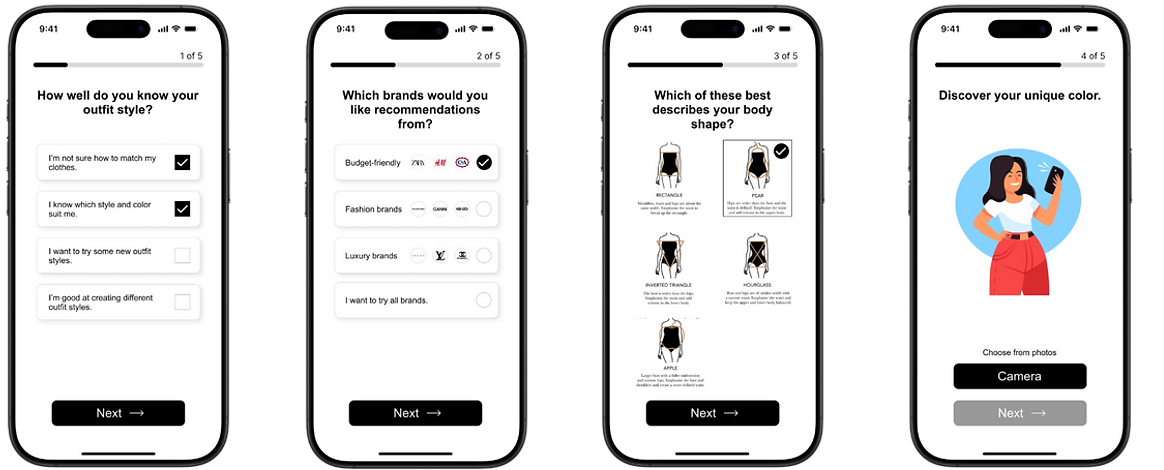
1. Understand user’s expectations.
2. Setup budget range.
3. Save user’s body shape.
4. Understand user’s skin tone for better insights.

4.1. Use photo to evaluate user’s skin tone.
5. Learn user’s outfit needs.
6. Save info for customized suggestions.
To provide users with fully personalized outfit suggestions, it’s essential to understand the user’s goals, preferences, and unique characteristics.
This quick, interactive questionnaire helps the AI gather key information efficiently while saving the user’s time, enabling the AI to start providing tailored outfit recommendations right away.
Scenario 2 - Direct recommendation
After user finish the setup. Outfit AI generator can automatically provide reliable suggestions.
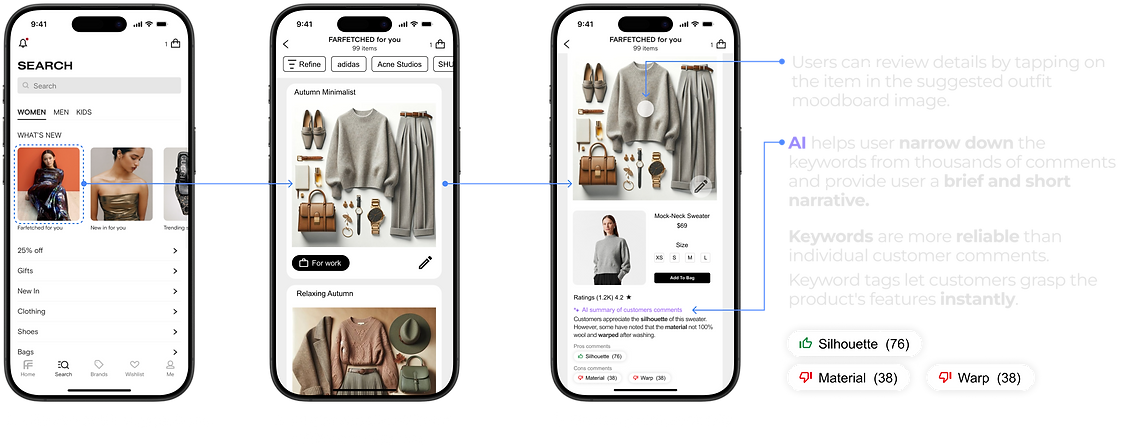
Scenario 3 - Wishlist
The integrated AI assistant will generate outfits with customer’s wishlist items. Customer can chat with AI to make further modifications.
